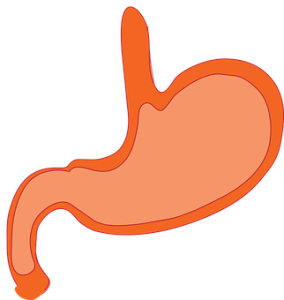 Hunger is mainly driven by two hunger hormones, Ghrelin and Leptin. Leptin is made by fat cells and is an appetite suppressor. Ghrelin is produced in the gut and increases hunger. Ideally, these two hormones work together to encourage appropriate times and amounts of food to keep a body nourished and at a healthy weight.
Hunger is mainly driven by two hunger hormones, Ghrelin and Leptin. Leptin is made by fat cells and is an appetite suppressor. Ghrelin is produced in the gut and increases hunger. Ideally, these two hormones work together to encourage appropriate times and amounts of food to keep a body nourished and at a healthy weight.
Leptin is naturally higher in thin people and lower in the obese. However, many obese individuals have built up a resistance to leptin, and do not get the appetite suppressing benefits. Ghrelin signals the brain when the stomach is empty, driving hunger. Ghrelin levels lower after eating, sending a message to the brain that the stomach is full. Ghrelin will not let us starve.
Inefficiencies with hunger hormones have been created from poor diets, constant eating, obesity, and stress. Understanding how to control hunger hormones may help with long-term weight loss.
Ghrelin levels increase: (increase hunger)
- When the stomach is empty
- In some obese individuals whose receptors do not work properly
- From restrictive diets
- As a result of high fat diets
 To lower Ghrelin levels: (reduces hunger)
To lower Ghrelin levels: (reduces hunger)
- Maintain a healthy weight
- Prioritize regular, adequate sleep
- Increase muscle mass through strength training
- Eat more protein
- Reduce intake of sugar from soda, juice, and ultra-processed foods
- Increase intake of good carbs from whole grains, fruits and vegetables
- Eat slower, allowing the brain to receive the full message from the gut
- Exercise regularly
- Reduce and manage stress
- Eliminate cannabis
For those trying to lose weight, a slow approach, focusing on eating whole foods, complete with lean protein, and good carbohydrates will help manage hunger hormones. Limiting high fat and high sugar food will also keep ghrelin levels in check. Lack of sleep and high stress, often go hand-in-hand and will raise ghrelin. Exercise not only lowers ghrelin but can help encourage sleep and lower stress.
Control hunger hormones and work towards better health in 2022!
by Christy Coughlin
